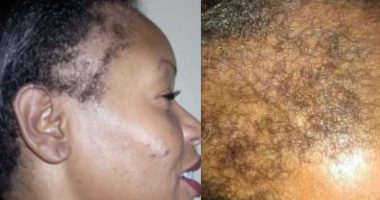Menopause is a natural phase in a woman’s life, but it often comes with challenging symptoms and eating right for Menopause, particularly hot flashes. Recognizing the need for tailored support, health guru Professor Tim Spector has introduced a groundbreaking feature in the Zoe app designed specifically for women experiencing menopause. This new tool, the MenoScale, aims to provide women with dietary strategies to alleviate their symptoms and regain control over their health.

What Is Menopause?
Menopause is a significant phase in a woman’s life that marks the end of her reproductive years. It is defined as the time when a woman has not had a menstrual period for 12 consecutive months, typically occurring between the ages of 45 and 55. This natural biological process results from the gradual decline in ovarian function, leading to decreased production of hormones such as estrogen and progesterone.
The Phases of Menopause
Menopause is often divided into three distinct phases:
- Perimenopause: This transitional phase can begin several years before menopause, during which women may experience irregular periods and various symptoms as hormone levels fluctuate. Symptoms such as hot flashes, mood swings, and sleep disturbances may start during this time.
- Menopause: This phase is officially reached when a woman has not had a period for 12 months. At this point, the ovaries have significantly reduced their hormone production, and fertility ends.
- Postmenopause: This phase follows menopause and lasts for the rest of a woman’s life. While many menopausal symptoms may subside, some women may continue to experience issues such as vaginal dryness or hot flashes.
Common Symptoms of Menopause
Menopause can bring about a variety of physical and emotional symptoms, which can vary widely among women. Some of the most common symptoms include:
- Hot Flashes: Sudden feelings of warmth, often accompanied by sweating and flushing of the skin. These can occur at any time of day or night and can last from a few seconds to several minutes.
- Night Sweats: Similar to hot flashes, but they occur during sleep, leading to discomfort and disrupted sleep patterns.
- Irregular Periods: Changes in menstrual cycle patterns, including skipped periods or heavier/lighter bleeding, are common during perimenopause.
- Vaginal Dryness: Decreased estrogen levels can lead to thinning and drying of the vaginal tissues, causing discomfort during intercourse.
- Mood Changes: Many women experience mood swings, anxiety, or depression during menopause due to hormonal fluctuations.
- Sleep Disturbances: Insomnia or difficulty staying asleep can be exacerbated by night sweats and other symptoms.
- Memory Issues: Some women report difficulty concentrating or experiencing “brain fog” during menopause.
- Changes in Libido: A decrease in sexual desire is common, often related to physical changes and hormonal shifts.
Causes of Menopause
Menopause is a natural part of aging, primarily caused by the decline in ovarian function. Women are born with a finite number of eggs, and as they age, the number of viable eggs decreases. This reduction in eggs leads to less frequent ovulation and ultimately the cessation of menstruation. In some cases, menopause can occur prematurely due to factors such as:
- Surgical Removal of Ovaries: A hysterectomy that includes the removal of ovaries leads to immediate menopause.
- Chemotherapy or Radiation Therapy: These cancer treatments can damage ovarian function, resulting in early menopause.
- Genetic Factors: Some women may have a family history of early menopause, which can influence their own timing.
Managing Menopausal Symptoms
While menopause is a natural process, its symptoms can be challenging for many women. Various management strategies can help alleviate discomfort:
- Lifestyle Changes: Regular exercise, a balanced diet, and avoiding triggers like caffeine and alcohol can help manage symptoms.
- Hormone Replacement Therapy (HRT): HRT can be effective in relieving symptoms by replenishing estrogen levels. However, it is essential to discuss the risks and benefits with a healthcare provider.
- Non-Hormonal Treatments: Options such as antidepressants, gabapentin, or herbal supplements may also provide relief for some women.
- Vaginal Moisturizers and Lubricants: These can help alleviate dryness and discomfort during intercourse.
- Mindfulness and Relaxation Techniques: Practices like yoga, meditation, and deep-breathing exercises can help manage stress and improve overall well-being.
Understanding the MenoScale
The MenoScale is a first-of-its-kind symptom tracker that allows women to monitor their hot flushes and other menopausal symptoms while receiving personalized dietary recommendations. By leveraging user data, the app can suggest specific foods and lifestyle changes that may help mitigate these symptoms, thus empowering women to take charge of their health.
Spector emphasizes that women have often been overlooked in health discussions, particularly regarding menopause. The MenoScale seeks to change this narrative by providing a platform where women can actively engage with their health, share experiences, and access tailored advice that recognizes their unique needs during this transitional phase.
The Importance of Agency in Health Discussions
Spector’s announcement on X highlights the significance of the MenoScale in giving mid-life women the agency they deserve when discussing their health. He states, “Women have been broadly overlooked in health discussions, particularly when it comes to menopause. The MenoScale aims to change that by providing a platform for women to take control of their health and access personalized advice that recognizes their unique needs during this transitional phase.”
Dietary Patterns and Their Impact
Research indicates that dietary choices can significantly influence menopausal symptoms. A study published in the journal Menopause found that a low-fat, plant-based diet rich in fruits, vegetables, and whole grains was associated with a lower risk of experiencing hot flashes and night sweats. Another study in the Journal of the American College of Nutrition suggests that a Mediterranean-style eating pattern, which emphasizes olive oil, nuts, legumes, and fish, may help alleviate vasomotor symptoms in menopausal women.
These diets are rich in antioxidants and anti-inflammatory properties, which can be beneficial for overall health during menopause. A review article in the journal Nutrients highlights the potential role of dietary antioxidants in reducing oxidative stress and inflammation, which are linked to menopausal symptoms.
Key Nutritional Recommendations

Increase Calcium and Vitamin D
Essential for bone health, especially as the risk of osteoporosis increases post-menopause. The National Osteoporosis Foundation recommends a daily intake of 1,200 mg of calcium and 600-800 IU of vitamin D for women over 50.
Incorporate Isoflavones
These plant estrogens are found in soy products and may help relieve hot flushes for some women. A meta-analysis in the journal Menopause found that soy isoflavone supplements were effective in reducing the frequency and severity of hot flashes in menopausal women.
Emphasize Whole Foods
A diet rich in fruits, vegetables, whole grains, and lean proteins can support overall health and weight management, which is crucial as hormonal changes can lead to weight gain. A study in the Journal of the Academy of Nutrition and Dietetics suggests that a diet high in fruits and vegetables may help reduce the risk of developing metabolic syndrome in menopausal women.
Limit Trigger Foods
Women are advised to avoid spicy foods, caffeine, and alcohol, which may exacerbate hot flashes. A survey conducted by the North American Menopause Society found that 60% of women reported that spicy foods triggered their hot flushes.
Physical Activity and Its Benefits
Regular exercise is vital for managing menopausal symptoms. Engaging in moderate-intensity activities, such as brisk walking or yoga, can help reduce the frequency and severity of hot flushes while also improving mood and overall well-being. The CDC recommends at least 150 minutes of moderate aerobic activity each week for adults.
A study published in the journal Menopause found that women who engaged in regular physical activity experienced fewer and less severe hot flushes compared to those who were less active. Another study in the Journal of the American College of Sports Medicine suggests that yoga may help alleviate menopausal symptoms and improve overall quality of life.
Stress Management Techniques
Incorporating stress-reducing practices such as mindfulness, meditation, or yoga can also be beneficial. Stress has been shown to worsen hot flashes, so finding effective coping strategies is essential for women navigating menopause.
A study in the Journal of the American College of Nutrition found that a mindfulness-based intervention was effective in reducing the frequency and severity of hot flashes in menopausal women. Another study in the Journal of Clinical Oncology suggests that yoga may help reduce stress and improve sleep quality in women experiencing menopausal symptoms.

FAQs
Q. Can diet really influence menopausal symptoms?
A. Yes, dietary choices can significantly impact the severity of menopausal symptoms. A balanced diet rich in specific nutrients can help alleviate symptoms like hot flushes. Studies have shown that low-fat, plant-based diets and Mediterranean-style eating patterns may help reduce the frequency and severity of hot flushes and other vasomotor symptoms.
Q. What foods should I avoid during menopause?
A. It’s advisable to limit spicy foods, caffeine, and alcohol, as these can trigger or worsen hot flushes. A survey found that 60% of women reported that spicy foods triggered their hot flushes.
Q. How can the Zoe app help me?
A. The Zoe app’s MenoScale feature provides personalized dietary recommendations based on your symptoms, helping you make informed food choices to manage menopause effectively. By tracking your symptoms and providing tailored advice, MenoScale empowers women to take control of their health during this transitional phase.
Q. Is exercise important during menopause?
A. Absolutely. Regular physical activity can help reduce the frequency of hot flushes and improve overall health and mood. Studies suggest that engaging in moderate-intensity activities like brisk walking or yoga can alleviate menopausal symptoms and enhance overall quality of life.
Q. Are there any supplements I should consider?
Consulting with a healthcare provider is essential before starting any supplements. Calcium and vitamin D are often recommended for bone health during menopause, with the National Osteoporosis Foundation suggesting a daily intake of 1,200 mg of calcium and 600-800 IU of vitamin D for women over 50.
Conclusion: A New Era in Menopausal Health
Tim Spector’s introduction of the MenoScale in the Zoe app marks a significant advancement in the way women can manage menopausal symptoms through diet. By empowering women with knowledge and tools, this innovative feature not only addresses the immediate discomfort of hot flushes but also promotes long-term health and well-being. As more women gain access to personalized dietary insights, they can navigate menopause with confidence and agency, transforming a challenging life phase into an opportunity for renewed health.
Don’t Miss | Stacy London’s ‘Scary’ Menopause Symptoms Had Her Questioning Her Mental Health









